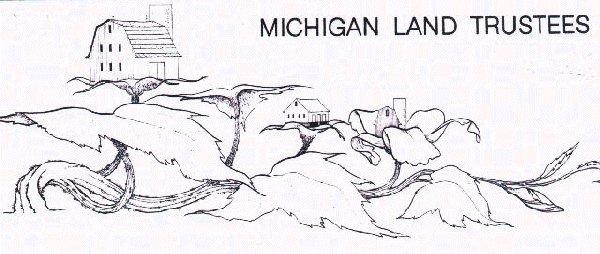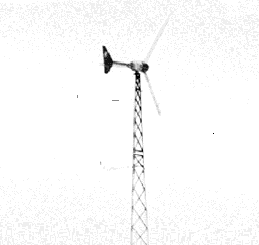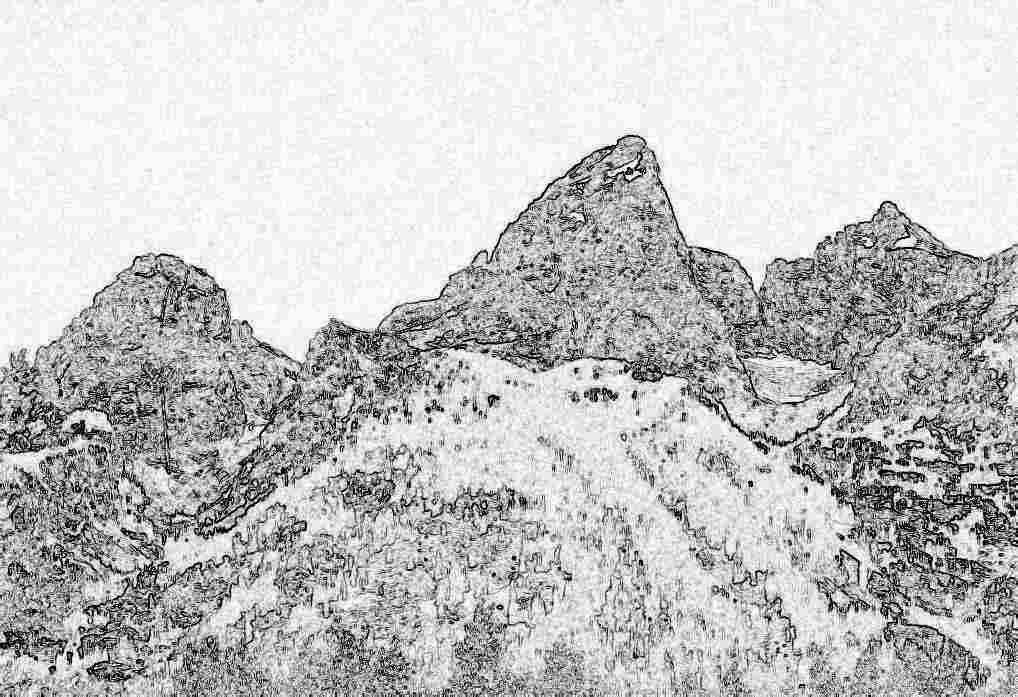



MLT Newsletter
Fall 2001
A lot has happened since the last newsletter, the world has changed for one thing. One week we were pondering how to best defeat missile defense and opening up the arctic refuge to oil interests, against the conservative onslaught, and the next minute, the presidents request to congress for military spending was doubled and approved as was slant drilling under the great lakes. One minute New York City was in a near panic over a case of the West Nile virus, the next, civilization nearly stopped, with the heartbreakingly tragic deaths of 3000+ people in the WTC buildings. History is reborn.
While contemplating our impending military buildup and deployment to wage our war on terrorism, I can't helpbut think of our overriding and overwhelming interest in the middle east, oil, without which our economy would grind to a halt. Some way or other our concern may shift away from terrorism to this resource which is the basis of our way of life. Hearing president Bush focus on our response to this attack on our "freedom and way of life", the irony is overwhelming.
While we are gearing up for this retaliation and told to be patient since it may be a long process, maybe we need a second "Marshall Plan" and declare that we will , say, halve our energy consumption, over, lets' also say, 10 years and declare it likewise, a national emergency. What could be more important to national security than to reduce by a large amount our dependence on Saudi oil, which may be an origin for this well of hatred for the US.
Regardless, this national disaster is the center of my existence at present and that loss as in any personal tragedy, will always be there. I hope all those families with voids of emptiness in them find the strength and meaning to move in positive directions. Jon Towne
Stewards of Creation
Michael Phillips
Even after Nixon, Watergate, and Vietnam, there was still a lot of optimism going into the 1980's. Just previously, President Carter had declared war on energy and ecology was lodged in the nation's collective consciousness. I truly thought that we were on the verge of a solar age-that with thoughtfulness, deliberation and conservation, all the diverse communities of the world could get along on our fragile planet. Boy, was I a fool.
Despite having grown up in the suburbs of Detroit, my wife and I caught a glimpse of the environmental movement: ecology was more interesting than shopping and we ate a lot of vegetable and brown rice. There was a time when we walked just about everywhere. Back then, we were confident that if society could simply exercise some semblance of restraint... I was in my late twenties at the time-dense and certain about many things-a condition that I can now blame on a protracted, but joyful, post-adolescence. When we moved to rural southwest Michigan, the plan was to live simply on a small plot of land. We've since fallen.
It's been over twenty years and I'm still reeling from the dawn of Reagan. The solar age gave way to the consumption age. In the twinkle of an eye, our national agenda shifted to wealth, commodities and purchases. Reagan even had the solar hot water heater torn from the roof of the White House.
The antithesis of ecology and conservation was the new Secretary of the Interior, James Watt, who, with apocalyptic fervor, laid the department to waste. he was a bellwether of things to come.
I was in college back then. My academic focus was on religion and nature, and religion over nature. The Book of Genesis was fascinating-man had "creative dominion" over nature; and that, coupled with our culture's hubris along with the cold mechanisms of science, wreaked havoc. Twenty years later, I remain fearful that the Earth is temperamental, if not fragile, and that humanity has been reckless and that there will be ecologic hell to pay.
Recently, I found an old college paper expounding on the religious and ecological scholarship of Professor Lynn White. Back in the sixties, Prof. White provided a compelling rationale for a "Franciscan attitude" towards nature. St. Francis conducted himself with grace, humility, and the view that all creatures shared dominion with the earth. Unfortunately, it's unlikely that St. Francis will emerge as a cultural icon any time soon. Ultimately, I think that the human prospect is dim.
A couple of years ago, my son and I were on a train between Strasbourg and Paris. We shared a compartment with a kindly, engaging businessman on his way to appointments in Rennes. At one point, I remarked to him that the French appeared to have a passion for vegetable gardening and small-scale farming as it seemed that the back yard of every home, as well as much of the commons within view of the rail was plotted and tilled. (We were passing through the hills of the "white coast," where the grapes are grown for champagne.) Suddenly, the gentleman grew somber and poured out in halting English that Europe was changing and that the commons were stressed and that the French farms were dwindling. "It's dying, it's dying, he choked. Then he just sat there silently looking out the window at the passing countryside for a good long time. I wasn't sure whether he was talking about French agriculture or nature or both. In any case, I've been haunted by his remarks ever since.
My family and I are in many respects surrounded by the works of Joe Filonowicz. We bought the farm we live on from the Land Trust founded by Joe, Maynard and Paul Shultz in 1976 who received it as a donation from Joe in 1977. I look across the road and all the land that I see was owned by Joe at about that time. He motivated myself and at times one or two others, to work that 160 acre farm as an experiment , but also as an opportunity for myself, to build a working and profitable farm. He had a lot of hope for some of us "slackers turned back to the landers". I think he was quite disappointed that this enterprise didn't take off, but it certainly was no fault of his own but of the material he was working with- namely us(by "us" I 'm referring to myself in particularly) with our ambivalent lack of commitment to entrapreneurship. Jon Towne
Joseph C. Filonowicz: A Tribute
Maynard Kaufman
I first heard of Joe Filonowicz when I received a post card from him in March of 1976. He wrote, in effect, that he heard I had a School of Homesteading on our farm and wondered whether I would be interested in starting a land trust so our graduates would have access to land. He explained that he had already started a land trust in North Carolina and would like to get one started in Michigan.
So of course I agreed that I would like to help to organize a land trust and he came over and we spent a lot of time getting acquainted and discussing the possibility of a Land Trust. The IRS did not provide Michigan Land Trustees with a tax-exempt status until we showed we would use the farm for students in the Homesteading Program which I had proposed at Western Michigan University. As a result the land trust made the homesteading program at WMU possible and homesteading program made the land trust possible. Once our tax-exempt status was secured Joe was able to donate the so-called "Land Trust Homesteading Farm" to Michigan Land Trustees.
As we got acquainted Joe and I realized we had something in common: we both had a theological education at the University of Chicago. This common experience lent a dimension of depth to our many conversations. Joe had a Bachelor of Divinity degree and served as pastor in a church in Hudson, Michigan. He told me once he served for only a year because his orientation was too leftist for his congregation. Whether this was literally true or not, it symbolizes an essential element in Joe's character. Here was a man with liberal, humane and reformist values which really came from the heart. And yet they appeared as super-imposed on a hard-headed capitalist persona. Joe, with a cigar (usually unlit)clamped tightly in his teeth as a prop, was comfortable with bankers and industrialists. He would walk into the city manager's office and say "I'm Joe Filonowicz. I'd like to spend some money in this town." But in spending that money he challenged the power structure, at least in Bangor.
I remember when Joe discovered that the bank in Bangor, which was locally-owned, actually made very few loans in the local community. He felt, moreover, that the bank was part of a corrupt local clique that may have cheated employees in a factory of their pensions. His response was to work to organize another bank. So he set out to find enough people willing to invest a thousand dollars each. Needless to say, he did not find enough such people. Earlier in his career as industrialist he promoted ESOP (employee stock ownership plan) in his factories and was disappointed to find that most people preferred a simple salary-- disappointed but not surprised.
This aspect of Joe is easy to misunderstand. He was not simply your run-of-the-mill gruff tough exterior over a soft heart. He was tough on the inside too. He understood irony and the comic structure of life. Irony is when you mean the opposite of what you say. And an ironic sense of life is willing to expect the opposite of what is intended. When I sometimes called Joe "J.C." he used to smile in a shy and rueful way. He was the CEO as Christ-figure or the Christ-figure as CEO. Either way, he was not surprised to be hailed or nailed for his good deeds.
Of course he never referred to his efforts as "good deeds," though in fact he always tried to do the right thing. Since we in MLT saw him as our benefactor, we often failed to understand what Joe was up to--especially when he initiated the spin-off he called "Community Connections." Joe often referred to such efforts as "social experiments". I see them as expressions of the ironic sense of life, attempts to set events in motion by doing a good deed in order to see what would happen.
During the years I knew him, Joe was nearly always busy on a writing project. I remember a book-length manuscript he called "Utopian States of America". I like that book, but as I remember it now in the light of his final testament, I could probably appreciate the irony in it more than I did then. In any case, however, the ironic sense of life never displaced his profound moral concern or his tenacious intellectual effort to understand the human comedy. He never gave up. Like Guy Noir, only more so, he was always trying to find the answers to life's persistent questions.
![]()
As newsletter editor, I'm hoping to develop themes as a centerpiece of each newsletter. If there is something you would as reader and (hopefully) writer, want to explore or see explored, please participate and suggest topics and themes and of course, send articles. We sent out about 80 copies of the last issue and of course, each issue is placed on the MLT web site. Just sit back and watch the fame, money and accolades roll in!
One such theme that has been on my mind, is an exploration of prehistoric native american culture and artifacts for this area of the midwest. This may be irrelevant to our present predicament to how to live sustainably on our planet, but it may be interesting nevertheless.
